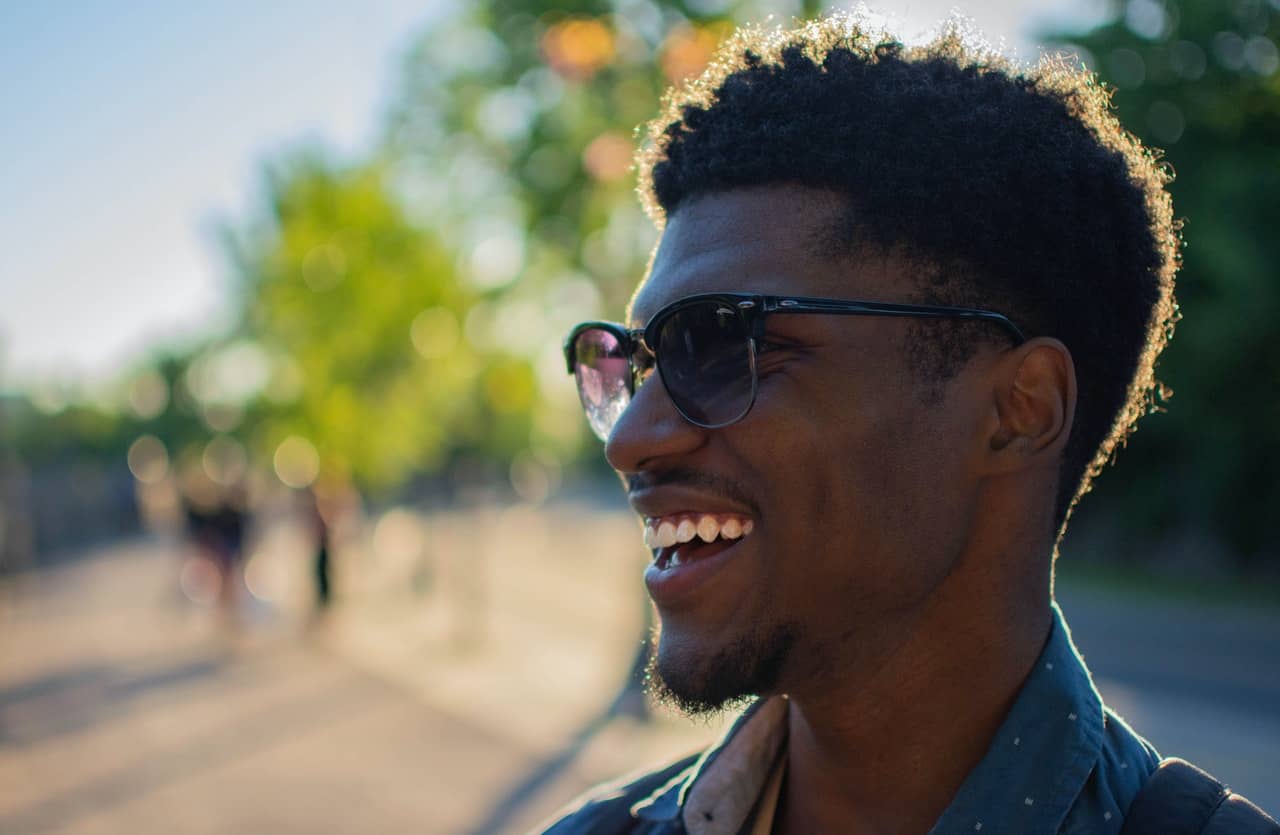How can sexual medicine and sex coaching be integrated for the greater good of the client? My sex coaching journey started with just a need for certification, however what I found was a totally different world that included a journey of self-discovery. And I also discovered how to integrate my profession as a medical doctor with my new career as a sex coach.
When I joined Sex Coach U (SCU), I was already in the medical field and, from a medical perspective, quite comfortable with diagnosing “sexual dysfunctions.” But they were detached from me, and from the client, as well. I saw the client as a very separate body and quite removed from their sexual concerns. Yes, the modern medical curriculum does emphasize treating the patient as a holistic person, but not in the way the MEBES® model does it.
The Client in Sexual Medicine and Sex Coaching
This difference became very apparent when I was seeing a client who “just” wanted to make their sex life interesting. We explored the relationship and, with clarification and probing, we came to understand both the relationship and its boundaries, and the direction the couple was willing to go. I thought this was fairly standard and very easy for the patient.
At the end of her first session, I asked a question that I have never asked before: “How was this session for you?” I asked the question with an answer in my head. However, the answer I received was not the one I expected.
The client said the sex coaching session and process was tougher than she thought it would be. She felt naked and vulnerable. She also found it very confronting and gave her a lot to think about. The answer made me pause, because it highlighted my own need to appreciate the client as a person with feelings. I realized my clients are trusting me with very vulnerable parts of themselves.
I then asked, “But did you find it helpful? Was it what you were expecting?” She responded that it was what she was expecting and more. In fact, she wanted a follow up sex coaching session with her partner.
I have since made that a standard closing question at the end of my sessions. Doing so reminds me that, as a sex coach, there is a deeply humanistic side to what we do. I’ve also learned to appreciate that this is a position of power and influence I hold, and I honor the trust my clients exhibit when they reveal their vulnerabilities to me during a sex coaching session.
During my time in the emergency department, I could see an average of 60 patients per shift, but I find that I cannot see more than two or three sex coaching clients per day. Even then, I need to have time for mental recovery. I now understand what it means to be a container. As a medic, seeing any sort of client, their concerns washed off me and I was very detached. The process was robotic. But as a sex coach, it’s like I’m in this journey with the clients and I embrace their objectives. It’s not just about excellence, I am invested in their success as a person.
Personal Biases in Sex Coaching and Sexual Medicine
The SCU curriculum teaches you not only theories and facts, but it also enables you to explore and push your own sexual boundaries, and hence, it helps you discover your biases. At SCU, I learned how my biases can influence my clients.
For example, personally, I believe in monogamy, and I believe that people should be given a choice on whether they want to be in a non-monogamous relationship or not. And I respect the choice of those who decide to be non-monogamous. Infidelity, on the other hand, is where the choice to be in a non-monogamous relationship is taken away from you, whether you are aware of it or not. It’s taking away from one’s autonomy.
Learning to articulate these feelings made me acutely aware that my beliefs could potentially have an impact on my objectivity as I assist clients dealing with issues around infidelity. I believe I have made peace with that bias, however, I am very deliberate in how I work with those clients and have made a choice to be more self-aware lest I lose focus and the bias resurfaces.
Personal Boundaries as a Doctor versus a Sex Coach
Through my studies at SCU, I also learned to appreciate that it’s okay to have my own boundaries in terms of who I work with as a sex coach. In medicine, there is the “do good and do no harm” model. A doctor is trained to treat every patient. So walking away from a patient comes with a sense of failure and shame that is deeply ingrained into our training as doctors. The thought of saying no to treating a patient feels like one is committing a crime and, while this is within the necessary legal and ethical framework, the sense of guilt and shame stays with you. You have to remain impartial, objective, and give your best. Often it feels like the only way to do that is to switch off all emotions. You do not treat a person, but a disease.
It’s through becoming a sex coach that I realized I can say no when it’s actually in the best interest of the patient. For me, I know that I would not be able to work with rapists as a sex coach. I would rather refer them out because I believe I would be unable to be impartial. Hence they would get better help from someone else. As a medic, I simply switch off and do what needs to be done.
This made me realize that the humanistic aspect of dealing with clients is what can actually make me a better doctor. So being a sex coach has enriched my practice of medicine.
The Culture of Medicine

Photo by Karolina Grabowska from Pexels
In the African culture and throughout much of the rest of the world, doctors are highly respected; therefore, the practice of medicine can be quite authoritarian. It’s rare to get that exciting patient who will engage you and ask a lot of questions and challenge you. Most times, consultations include history taking, examination, investigations, and treatment plan management. The whole time, the patient is kept informed of what is happening and consent is sought where necessary. But the patient’s role is mostly as a spectator.
It’s a very different feeling with sex coaching, where it’s a collaborative effort and both sex coach and client are equally invested in the outcome and objectives. It’s our problem and our objectives to achieve, rather than telling the doctor the problem, and expecting them to come up with all the answers. I believe some aspects of the sex coaching model could be adopted and integrated into the medical model, which would revolutionize the practice of sexual medicine. When patients understand that both doctor and patient will work together to address the objective, I believe the consultation and treatment process vastly improves.
Appreciating All the Aspects of My Dual Career and Harmonizing Them
My portfolio is quite diverse, but my foundation is medicine. I love being a doctor, and I believe it’s what molded me into the person I am. My training as a doctor brought me to the spaces where I currently exist. It gave me an excellent foundation in sexual medicine in terms of the clinical aspect. I am able to explore and appreciate the medical aspect of clients’ sexual concerns.
But it’s the sex coaching that gave me the absolute confidence to call myself a clinical sexologist, because with my SCU training, I am more than a doctor; I am an educator, I am an advocate, I am a coach, I am a consultant, and I can say with confidence that I am an expert in the field.
As a Certified Sex Coach™, I treat the whole person, all their parts, even the spiritual and cultural parts and I incorporate the micro and macro environment. I understand the complexities of sexuality and I also acknowledge there is still a lot of uncharted territory to explore. I have learned to recognize my own limitations in the field.
Clinical sexology is more than just biology, therefore it’s more than just sexual medicine. There is this unrealistic expectation that as human beings, we should be born with the innate knowledge of how sex works. But it’s understanding how complex it is that created the space for sexology and gives permission for our clients to seek and receive professional help.
I was searching for certification, but in the process, I developed and found the cure for my imposter syndrome and I am ready to contribute fully to the field both as a medical doctor and as a sex coach.
Curious about training to become a Certified Sex Coach™? Join the next live Info Session to meet the SCU team and participate in a live Q&A!






Interesting read, loved it. About the author :: Dr Karabo Thokwane is (a) medical doctor.
I appreciate you taking the time to read and comment
Amazing work Dr. Thokwane. True leadership displayed and well articulated points. Keep up the good work
Thank you so much Dr Shingie. I appreciate the feedback.
Thanks for a brilliant article.It gives good explanation about sexual coaching and makes one appreciate what to expect from the Clinical sexologist Dr Thokwane without necessarily sounding like a marketing exercise. Unfortunately also reassuring to rapist as they won’t be reported but rather referred 😂🤣😂🤣.
Thank you so much TPN. Please refer to Dr Patti ‘s comment. And to just reiterate that we do work within the confines of the law and ethical standards.
Food for thought. Very insightful
Thank you so much
Part of the training at Sex Coach U is a comprehensive Ethical Practices and Standards course. In it, our students learn how to refer out and are educated also about ethical matters that may require further interventions, such as when to report a crime. Rape is a crime and one that no professional takes lightly. Offering an integration of both medicine and sex coaching are hallmarks of the standards of clinical excellence that Dr. Karabo Thokwane uniquely represents.